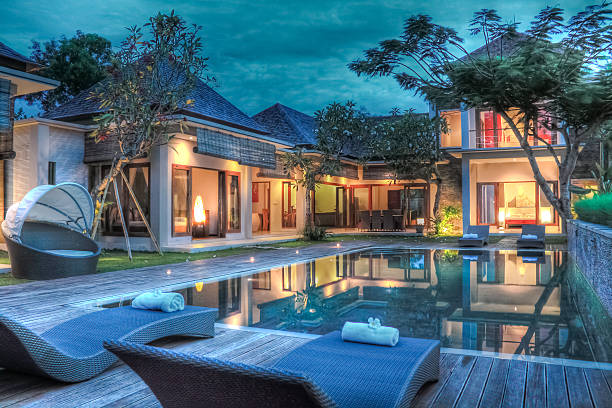Can Foreigners Buy Property in Bali? Legal Ownership Options Explained



Bali continues to be one of the most sought-after destinations for international investors, expats, and digital nomads looking to own a slice of paradise. Its lush landscapes, vibrant culture, and growing property market attract thousands of foreigners each year. However, a common question that arises is: Can foreigners legally buy property in Bali?
The short answer is yes—but with legal limitations and specific structures that must be followed. In Indonesia, foreign property ownership is regulated and must be approached cautiously to ensure full compliance with national laws. In this comprehensive guide, we explain the legal options available, ownership structures, risks, and the safest way to acquire property as a foreigner in Bali.
Understanding Property Laws in Indonesia
Indonesia’s Basic Agrarian Law restricts direct freehold ownership of land and property to Indonesian citizens. This means that foreigners cannot legally own land under their own name. However, the government has provided alternative legal instruments that allow foreign individuals and corporations to hold rights over property. These include:
Right to Use (Hak Pakai)
Right to Build (Hak Guna Bangunan – HGB)
Leasehold Agreements
Ownership through PT PMA (Foreign Investment Company)
Let’s take a closer look at each of these.
1. Right to Use (Hak Pakai)
The Right to Use, or Hak Pakai, is the most common legal title available to foreign individuals. This right allows a foreigner to legally use and reside on a piece of land or property for residential purposes. Hak Pakai is issued for an initial period of up to 30 years, with possible extensions for 20 and then 30 more years—providing long-term security.
Requirements:
Foreigners must be legal residents in Indonesia, holding a valid KITAS or KITAP visa.
The property must be built on land that is certified with Hak Pakai title (which may be converted from Hak Milik under certain conditions).
This type of ownership is recommended for individuals purchasing villas or homes intended for personal residence.
2. Right to Build (Hak Guna Bangunan – HGB)
HGB is another legal form of ownership that allows the holder to construct and own buildings on Indonesian land. It’s typically valid for 30 years and extendable up to 80 years in total.
Foreigners can access HGB rights through a PT PMA (a foreign-owned company), which is permitted to hold such titles for commercial use, including rental villas, resorts, and real estate developments.
This is not suitable for personal residence unless structured via a PT PMA entity.
3. Leasehold Agreements
Another common legal workaround is the leasehold system, where a foreigner signs a long-term lease agreement with an Indonesian landowner. Lease periods generally range from 25 to 30 years and may include an extension clause.
While the foreigner doesn’t own the land, leaseholds are considered safe and valid if executed correctly, offering flexibility for residential or commercial use. However, since this is a private agreement, it’s essential to conduct due diligence and engage legal experts to avoid potential disputes.
4. Establishing a PT PMA (Foreign Investment Company)
Foreigners looking to own land for investment or commercial activity can establish a PT PMA (Perseroan Terbatas Penanaman Modal Asing)—a foreign-owned company that is legally allowed to own HGB land.
Benefits of PT PMA:
Legal ownership of commercial property and land under HGB title
Ability to operate a legal business in Indonesia
Longer-term investment control and asset security
This is the only structure that allows for direct property control beyond a lease, especially for commercial developments such as rental accommodations, hotels, co-working spaces, or other business ventures.
Legal Risks of Buying Property Without Proper Structure
Many foreigners attempt to bypass these legal frameworks by using an Indonesian nominee to hold the title of the property. This is a high-risk method and is not legally protected. If a dispute arises, the foreigner may lose their investment with little or no legal recourse.
Risks include:
Loss of property without compensation
Legal penalties
Tax complications
Future restrictions on land transfer or sale
To ensure a secure investment, always use legal pathways approved by Indonesian law and consult professionals before proceeding.
Can You Buy Freehold Land as a Foreigner?
No. Indonesian land law reserves Hak Milik (freehold) titles exclusively for Indonesian citizens. There is no legal way for a foreigner to hold land under a freehold certificate. Some developers may offer “freehold properties to foreigners” via nominee arrangements, but this should be approached with extreme caution.
If your goal is to live or invest in Bali long-term, choosing Hak Pakai, PT PMA, or leasehold agreements are the best legal options.
Property Types Available for Foreigners
Foreigners can legally acquire:
Villas under lease or Hak Pakai
Apartments in strata-title developments
Commercial properties via PT PMA
Land under HGB for development
Before finalizing a purchase, ensure that the property type and ownership structure match your visa status and legal strategy.
Legal Process to Buy Property in Bali as a Foreigner
Here is a simplified step-by-step guide to buying property legally:
Determine the Ownership Structure
Decide whether to use Hak Pakai, leasehold, or establish a PT PMA depending on your purpose—residential or commercial.Due Diligence
Check land certificates, zoning regulations, building permits, and tax status of the property. Legal verification is essential.Engage a Legal Consultant
Work with a trusted legal firm like The Bali Lawyer to ensure documentation, contracts, and compliance are handled professionally.Sign the Sale or Lease Agreement
Agreements must be notarized and registered with the local land office (BPN). If using Hak Pakai, the land must be converted appropriately.Report the Transaction to the Land Office
The transaction must be reported, and taxes settled according to Indonesian property law.Secure Your Visa
If using Hak Pakai, a valid stay permit (KITAS/KITAP) is required. For PT PMA, company registration and business licenses must be obtained.
Additional Costs and Taxes
Expect the following associated costs:
Notary fees (approximately 1%–2.5% of property value)
Transfer tax (5% of the transaction)
Lease registration fees
Annual land and building tax (PBB)
PT PMA setup costs (if applicable)
Ensure you include these in your budget when calculating investment potential.
Frequently Asked Questions
Can I rent out my villa in Bali as a foreigner?
Yes, if structured legally. You must have a PT PMA or commercial lease agreement that permits rental activity. Renting out property under a residential visa is prohibited without proper licensing.
Can I pass on my property to my children?
Yes, but only if structured properly through a PT PMA or lease agreements with inheritance clauses. Freehold inheritance is only available to Indonesian citizens.
Do I need a visa to buy property?
Not to purchase a lease. However, if you acquire property under Hak Pakai, you must hold a valid residence permit (KITAS/KITAP).
Why Choose The Bali Lawyer?
Navigating Indonesian property law can be challenging. At The Bali Lawyer, we specialize in helping foreigners understand, structure, and secure their property investments legally and safely. Our services include:
Legal consultations on land ownership structures
Contract and agreement drafting
Due diligence and title verification
PT PMA setup
Visa and stay permit guidance
Lease and Hak Pakai negotiations
We ensure that your investment in Bali is fully compliant and protected under Indonesian law.
